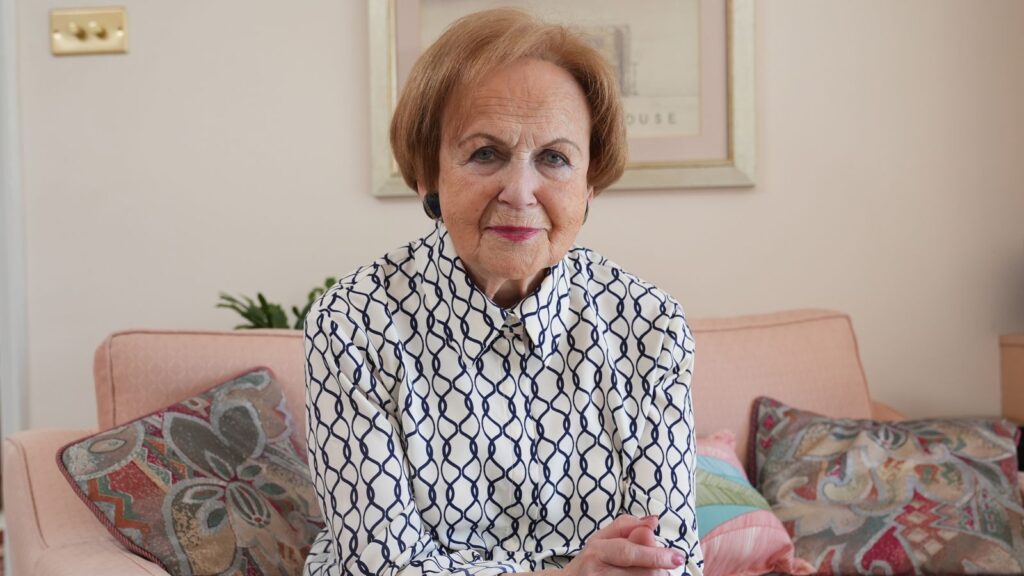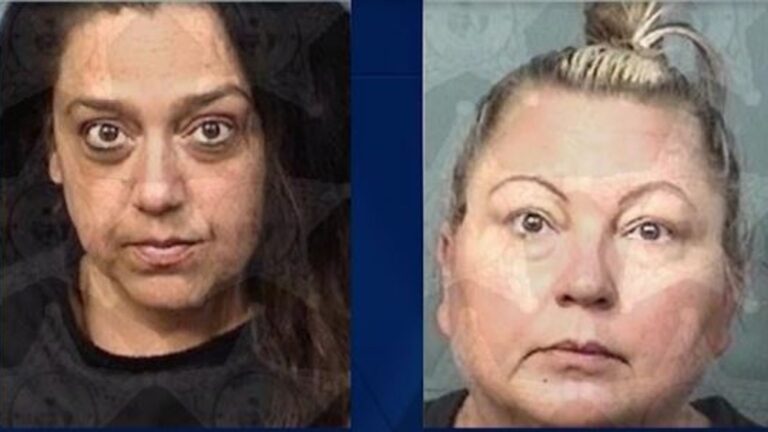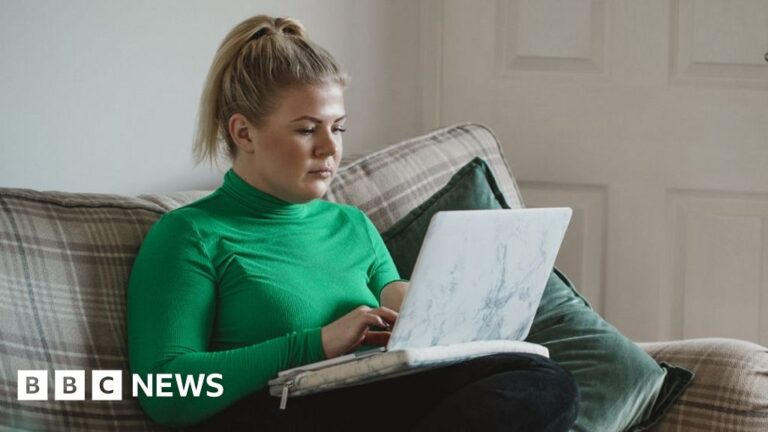

A Holocaust survivor has said it is “up to us to guard against” a repetition of the Second World War atrocity 80 years after the Bergen-Belsen concentration camp was liberated.
Warning – content may be upsetting
Tens of thousands of people, including diarist Anne Frank, died at the camp in northern Germany, which was liberated by British troops on 15 April 1945.
Mala Tribich, who was around 14 when she was deported to the camp with her younger cousin, said she still remembers what she went through there, because “you don’t forget that”.
Please use Chrome browser for a more accessible video player
 1:10 Holocaust survivors’ warning
1:10 Holocaust survivors’ warning
Mrs Tribich, who spent less than three months there, said she hopes that “nothing like that will ever happen again, and of course, it’s up to us to guard against it, and I hope that some people have learned the lessons.
“We have seen that it could happen again, and we must take every step not to let it.
“The world is different today. Different things are happening which are not very palatable, not very acceptable, but we must just constantly work against those terrible forces around us that make terrible things happen,” she added.
 Image: Bergen-Belsen inmates in 1945. Pic: Granger/Shutterstock
Image: Bergen-Belsen inmates in 1945. Pic: Granger/Shutterstock
Born in Poland in 1930, she was around nine years old when the Nazis invaded, forcing her family to move into a ghetto.
Her mother and eight-year-old sister were murdered by the Nazis in a local forest before she was taken to the Ravensbruck concentration camp with her younger cousin in November 1944.
Please use Chrome browser for a more accessible video player
 20:58 Survival ‘down to luck’
20:58 Survival ‘down to luck’
Stripped of her identity
Their clothes were taken and their heads shaved. They were “stripped of their identity,” she said.
That caused people to “lose hope, and without hope, you can’t survive, people give up and it showed itself very quickly”.
After about 10 weeks, Ms Tribich and her cousin were transported in cattle trucks to Bergen-Belsen, where, along with a “terrible smell”, she found people who looked “like skeletons” and “piles of corpses… it was horrific”.
Please use Chrome browser for a more accessible video player
 0:50 London turns purple for Holocaust Memorial
0:50 London turns purple for Holocaust Memorial
They moved to a children’s home in the camp, which was “a real bit of luck because we wouldn’t have survived in the main camp”.
She was so sick from typhus that she does not remember much of liberation day, but eventually reunited with her brother, Ben, in England in March 1947.
King urged her to write a book
Now living in London, she has a framed photo of herself speaking with the King, who, when they met, urged her to write a book about her experiences because “it’s really very important that all these things are put down because you will forget them”.
Mrs Tribich, who was made an MBE in 2012 for services to education, tells her story in schools and colleges across the UK through the Holocaust Educational Trust, which gives tens of thousands of young people every year the opportunity to hear the first-hand testimony of Holocaust survivors.
Read more:
Kate warns over rise of antisemitism
Survivors mark 80 years since Auschwitz liberated
Auschwitz survivor fears lessons not learnt
Trust chief executive Karen Pollock said the scenes that British soldiers found in Bergen-Belsen were of “unimaginable horror – thousands of unburied bodies and tens of thousands of emaciated and gravely ill prisoners”.
Please use Chrome browser for a more accessible video player
 0:36 William and Kate meet Holocaust survivors
0:36 William and Kate meet Holocaust survivors
Thousands more people lost their lives even after liberation, she said.
“As we mark 80 years since that day, we reflect on Britain’s connection to the Holocaust – both through the British soldiers who liberated the camp, and the survivors who found refuge in this country.
“With survivors and liberators dwindling in number and with antisemitism continuing to persist in our society – we must all commit to remembering the six million Jewish victims and must take action to ensure antisemitism is never again allowed to thrive.”




